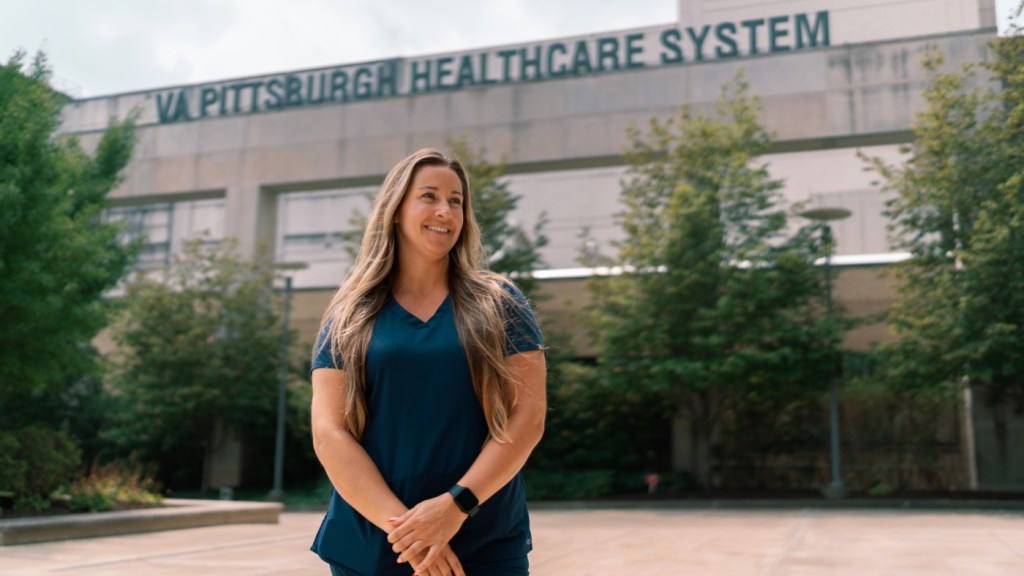
VA is the largest integrated health care system in the United States, with unique care environments across more than 1,300 facilities in the United States, as well as in U.S. territories like Puerto Rico, American Samoa, and Guam.
We sort our locations geographically into 18 regions known as Veterans Integrated Service Networks (VISNs). These regional systems of care work together to better meet local health care needs and provide greater access to care for Veterans.
Within each VISN, you’ll find a variety of care environments that help us support the more than 9 million Veterans enrolled in the VA health care program.
VA medical centers
VA medical centers (VAMCs) are found within every VISN, and serve as the heart of Veteran care. All VAMCs provide services like surgery, critical care, mental health, and physical therapy options—everything you would expect to find in a typical hospital setting.
Most centers also provide a variety of medical and surgical specialty services, like oncology (cancer care), geriatrics (elder care), and neurology (care for conditions of the brain and nervous system). Some medical centers also offer advanced services, providing organ transplants or plastic surgery.
Jobs in VAMCs are everything you would expect to find in a private hospital. From doctors, nurses, and front-line patient care to the support staff that keep the facilities running, there are lots of opportunities in VAMCs.
Community-based outpatient clinics
Community-based outpatient clinics (CBOCs) function as satellite facilities around VAMCs, and as the name implies, they provide the most common outpatient services, like health and wellness visits.
These facilities are designed to provide access to care in more convenient locations, allowing Veterans to skip the hassles that come with visiting larger medical centers. They are especially prominent in more rural areas, allowing us to reach a greater number of Veterans.
CBOCs typically feature primary care arrangements that address assessment, diagnosis, and treatment of conditions not requiring referral to specialty care or inpatient hospital services. These clinics also typically staff at least one mental health provider.
Community Living Centers
Community Living Centers (CLCs) are skilled nursing facilities providing care similar in scope to that of a private nursing home. However, unlike many nursing homes in the past, a Community Living Center resembles “home” as much as possible.
Veterans may stay at these facilities for a short time or, in rare instances, for the rest of their lives. Regardless of the length of a Veteran’s stay, a CLC operates with the goal of restoring each Veteran to their highest level of well-being. These facilities also work to prevent declines in health and to provide comfort at the end of life.
CLCs offer activities for Veterans of all ages and are designed to be family-friendly environments. Veterans are invited to decorate their rooms and even have pets, while the staff is on hand to assist with activities of daily living, like bathing and getting dressed, in addition to skilled medical care.
Vet Centers
Vet Centers are community-based counseling centers that provide a wide range of social and psychological services, including professional counseling to eligible Veterans and their families, in addition to connecting Veterans to other VA or community benefits and services.
Vet Center counselors and outreach staff, many of whom are Veterans themselves, are experienced and prepared to discuss the tragedies of war, loss, grief, and transition after trauma. Mobile Vet Centers also help bring care to more rural locations.
Individual, group, marriage, and family counseling is also offered at Vet Centers with an eye toward helping Veterans make a successful transition from military to civilian life, or after a traumatic event experienced in the military.
Home
Whether it’s challenges with time or distance, or simply the convenience of receiving care in a more comfortable environment, VA offers a number of ways to work with patients in their own homes. Home health care and telehealth appointments connect you with Veterans on their terms.
Home-based care can be short-term or long-term, but the goal is always to help a Veteran reach their whole health in a familiar environment. These programs bring you directly to a Veteran’s location and give you a chance to connect in-person, but outside the walls of a standard facility.
Telehealth at home offers services that support a Veteran’s care plan, but also allows them flexibility and independence from regular facility visits. Through video appointments and remote monitoring, you’ll meet Veterans virtually and support their care journeys remotely.
Work at VA
Whatever kind of career you want, and whatever kind of care you provide, there’s an opportunity to find the kind of facility that works for you at VA.
- LEARN about primary care at VA.
- EXPLORE the benefits of a VA career.
- SEARCH for an opportunity near you.


